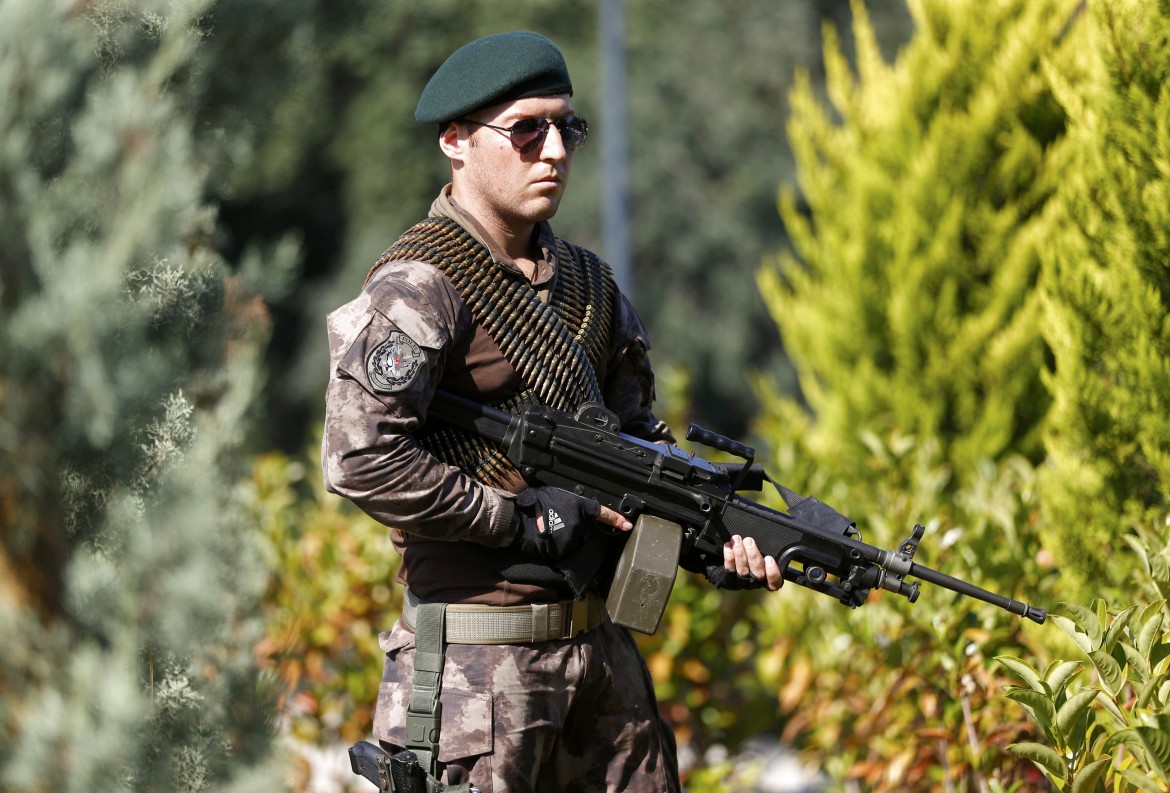Commentary
50 Nobel laureates have a reasonable proposal that will probably be ignored
‘World military spending has doubled since 2000. It is approaching $2 trillion per year.’ It’s an arms race. But there are ways to escape it if leaders dare.

Of course, it’s not the same as bringing back the rallying call of the labor movement at the beginning of the 20th century, as Sandro Pertini memorably put it: “Let the arsenals be emptied of weapons, let the granaries be filled.” Nonetheless, the proposal put forward on Thursday in an appeal signed by fifty Nobel laureates and academics from many countries—among others, Carlo Rubbia and Giorgio Parisi—is truly of great importance. Especially since—likely driven by the moral impulse of those who feel it necessary to speak the truth; after all, how much has science been abused by military research to destroy rather than create?—it addresses the governments of the world in a simple and direct way.
What does the appeal say and call for? Negotiating a balanced reduction in global military spending, which would make possible a great “global peace dividend,” freeing enormous resources to be used for the serious problems that humanity is facing: pandemics, global warming, extreme poverty. And it gets straight to the point, with a denunciation that forms a snapshot of the current condition of the planet, grappling with every kind of armed conflict: “World military spending has doubled since 2000. It is approaching $2 trillion per year, and is increasing in all regions of the world,” the Nobel laureates point out. “Individual governments are under pressure to increase military spending because others are doing so.” This is the arms race.
It is “a colossal waste of resources that could be used far more wisely.” It is the vicious circle of more weapons, thus more war, more war, thus more weapons—more and more sophisticated—from which not only is there no escape, but which is becoming more and more like quicksand. It is an arms race whose rate has doubled in the last 20 years, which has generated only devastating deadly conflicts. What do the scientists propose? “The governments of all UN member states should negotiate a joint reduction of their military expenditure by 2% every year for five years.” The logic of the proposal is simple: adversary nations should reduce military spending together, “so the security of each country is increased, while deterrence and balance are preserved.”
“We propose that half of the resources freed by this agreement are allocated to a global fund, under UN supervision, to address humanity’s grave common problems … The other half remains at the disposal of individual governments.” In short, the Nobel Prize winners insist: “Let us cooperate, instead of fighting amongst ourselves.”
Too simplistic? Not really. Let’s make a few quick calculations. In Italy, the Ministry of Defence spends €26 billion annually, equivalent to an average of more than €70 million per day—while we are facing the worst wages on the continent, lack of health care and fierce battles over the citizenship income.
In addition to these funds, for the next few years, there is a fund of €30 billion allocated for military purposes by the Ministry of Economic Development and another €25 billion set out by the Recovery Fund. In the coming years, as requested by NATO and insisted upon by the U.S., we must increase military expenditure to at least €36 billion per year, equivalent to an average of about €100 million per day. Every minute, all over the world, about $4 million are spent for military purposes. In 2020, world military spending almost reached $2 trillion, the highest level of inflation since 1988.
World military spending is driven by U.S. military spending, which has risen to about $770 billion a year (SIPRI estimates that this is three times China’s military spending and 12 times Russia’s). The figure represents the Pentagon budget, including that for war operations. Together with other military line items, it adds up to a total of more than $1 trillion per year.
Some will immediately gripe about the supposed naivety of the appeal of the Nobel Prize winners: the 2% reduction would nonetheless legitimize that the other 98% can be used for war. The truth is that this cost saving measure—which, for an estimated total expenditure of $2 trillion, would mean so many billions diverted towards peace and the vital needs of humanity—is unlikely to be approved by any government in the world, even those committed to the “ecological transition” but which have their arsenals full of weapons, including nuclear ones. We’d love nothing more than to be proven wrong.
This is because everyone is active in the race for rearmament, and also facing the blackmail of the prospect of unemployment—which is also weighing heavily among the trade unions, because real discourse about the reconversion of the war industry has never seen widespread adoption. Everyone is doing this, starting with the Draghi government, who has repeatedly touted rearmament while approving the most obscure and unaccountable arms sales to corrupt and dictatorial regimes, if not outright at war or occupying other countries.
The Draghi government is committed, together with Macron and other European leaders (take, for instance, the “ecological” armed drones found in the green-social-democrat government pact in Germany) not to reduce spending on arms, but instead to “simply” double it with the so-called European Defence. This is intended not as an alternative to the burdensome expenses for the Atlantic Alliance, but as a redundant addition, as a reinforcement of NATO, whose role remains central—as it does in starting new crises and wars after the disastrous ones that have already had it as a protagonist. So, Draghi should listen and give an answer to the appeal of the 50 academics and Nobel Prize winners.
Originally published at https://ilmanifesto.it/draghi-risponda-ai-cinquanta-premi-nobel/ on 2021-12-15
